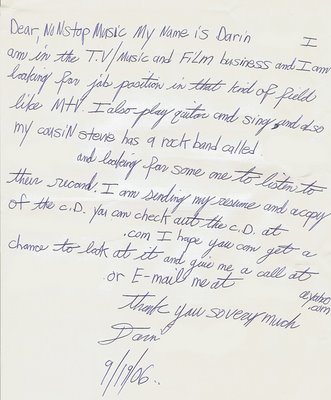After perusing FMC’s web site I recently came across an article touting the impending greatness of cloud computing’s effect on the music industry namely in the form of Spotify.
While the article notes “streaming of music from the cloud could be one of the missing puzzle pieces for which the music industry has been so desperately searching” and highlights some great positives of streaming services like Spotify, I’d like to point an obvious fact: streaming has been around for years.
If streaming were the answer to all of the music industry’s problems, quite frankly it would have already solved them. While Spotify is definitely a convenient way to listen to music on computers, phones, and media devices equipped to access content over the internet, it is still limited despite claims of having your music anywhere, anytime, on any device. What if you’re on a plane? What if you’re on the subway? What if you have AT&T and get terrible 3G reception despite having an awesome, more-than-capable device like the iphone? (SLAM!)
It’s also a fallacy to say the problem with the music business model can be solved by fixing its distribution method – this isn’t the case. Labels are still trying to grasp hold of sales to a broad consumer base and ultimately this doesn’t work. Ideally labels need to focus on licensing (publishing) and using the music as a promotional tool to drive concert and merchandise revenue. Spotify does NOT change anything about the music industry itself. It merely offers another, quite similar, not totally accessible platform for the consumer.
What should be kept in mind by everyone trying to revitalize the monetization of music is the value of the music no longer has anything to do with the format on which its presented, but in the experience and association the music provides the listener. Thus the thinking should be: Who is a more profitable consumer and how do I reach them?
Finally, who is the streaming method good for at this point in time? For the consumer its decent unless you’re traveling by plane, subway, or generally don’t get a good wireless connection. For labels it could go either way but historically labels have not taken advantage of technology and furthermore have spent large amounts of cash to either avoid it, or even exploit it, with little to no success either way.
It’s great for Spotify…
What about independent artists? As far as I know there isn’t much in place that helps out the little guy – though I could be wrong as I’m not able to use Spotify here in the US. Device manufacturers will probably see it as just another tool to use to get people to buy or use their devices – not terribly powerful, but not harmful either.
Ultimately Spotify, while a great service, is probably not the answer to the music industry’s woes. As wireless becomes faster and more prevalent, and as the music industry begins to bend and re-shape itself, the opportunity is definitely there and I could be chowing down on these very words in the near future. So perhaps something better than another paid subscription service or ad-revenue model will present itself as a result of Spotify’s efforts, but both Spotify and the music industry still have a long way to go.


